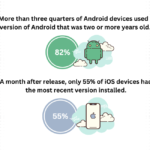The Role of Mobile Apps in Improving Customer Engagement is an essential topic in today’s digitally-driven landscape. As businesses strive to build stronger connections with their audiences, mobile applications have emerged as critical tools that enhance customer interaction and satisfaction. By offering personalized experiences, instant communication, and convenient access to services, these apps have transformed the way brands engage with their customers, fostering loyalty and driving growth.
With the rapid advancement of technology and the increasing reliance on smartphones, understanding how mobile applications can elevate customer engagement is vital for any business looking to thrive in a competitive market. This article explores various aspects of mobile apps, their impact on customer relationships, and the strategies that brands can employ to maximize their effectiveness.
In today’s fast-paced world, the necessity for effective communication has never been more critical. Whether you are writing an email to a colleague, crafting a social media post, or preparing a presentation, the way you convey your thoughts can significantly impact your message. This article will delve into the various aspects of communication, including its importance, the different forms it takes, and tips for enhancing your communication skills.To start, let’s consider what communication truly entails.
At its core, communication is the process of exchanging information between individuals or groups. It can be verbal, non-verbal, written, or visual. Each type of communication plays an essential role in how we interact with one another and understand our environment.Verbal communication involves the spoken word. It is perhaps the most immediate form of communication, allowing for real-time interaction. This form can take place in a variety of settings, from casual conversations among friends to formal discussions in a corporate meeting.
The effectiveness of verbal communication often hinges on clarity, tone, and body language. For instance, a friendly tone can foster a positive atmosphere, whereas a harsh tone may lead to misunderstandings or conflicts.Non-verbal communication is equally significant and often conveys more than words themselves. This includes body language, facial expressions, gestures, and even silence. For example, maintaining eye contact can signify confidence and attentiveness, while crossed arms may indicate defensiveness.
Being aware of non-verbal cues can enhance your ability to understand others and express yourself more effectively.Written communication encompasses emails, reports, articles, and even text messages. In today’s digital age, proficiency in written communication is paramount. It allows individuals to articulate their thoughts clearly and provides a record of information that can be referred to later. When crafting written messages, it’s essential to consider your audience.
Tailoring your language and tone to suit the intended reader can significantly improve the impact of your message.Visual communication uses imagery to convey messages. This can include charts, graphs, infographics, and videos. Visual elements can often clarify complex information and make it more accessible. For instance, a well-designed infographic can distill vast amounts of data into a visually appealing format, making it easier for the audience to grasp key points quickly.Now that we’ve Artikeld the different forms of communication, let’s discuss why mastering these skills is essential.
Effective communication fosters better relationships, enhances collaboration, and facilitates problem-solving. In a professional environment, clear communication can lead to increased productivity and reduced misunderstandings. Furthermore, in personal relationships, open lines of communication can strengthen bonds and build trust.To improve your communication skills, consider the following tips:
1. Listen Actively
Communication is a two-way street. Listening is just as important as speaking. Practice active listening by giving your full attention to the speaker, nodding in agreement, and providing feedback or asking questions to clarify points. This shows that you value what the other person is saying, fostering mutual respect.
2. Be Clear and Concise
Whether you are speaking or writing, clarity is crucial. Avoid jargon and overly complex language unless it is appropriate for your audience. Get to the point quickly, and ensure that your main message stands out. This will help prevent misunderstandings and hold the attention of your audience.
3. Practice Empathy
Understanding others’ perspectives is vital to effective communication. Empathy allows you to relate to the feelings and thoughts of others, making it easier to connect and communicate. When you approach conversations with empathy, you are more likely to engage in meaningful dialogue.
4. Adjust Your Tone
The way you say something can be just as important as what you say. Be mindful of your tone and adjust it according to the context. A friendly tone can create a more inviting atmosphere, while a serious tone might be required in more formal situations.
5. Seek Feedback
Don’t hesitate to ask for feedback on your communication style. This could be from friends, colleagues, or mentors. Constructive criticism can provide valuable insights into areas where you can improve.
6. Utilize Technology Wisely
In our digital world, technology plays a significant role in communication. Utilize tools like emails, messaging apps, and video calls effectively. However, be mindful of over-reliance on digital communication, as it can sometimes lead to misinterpretation due to the lack of non-verbal cues.
7. Practice Regularly
Like any skill, effective communication requires practice. Take every opportunity to engage in conversations, give presentations, or write. Each interaction provides a chance to refine your skills.In conclusion, communication is a vital aspect of both personal and professional life. By understanding the different forms of communication and honing your skills, you can significantly impact your interactions and relationships. Remember, effective communication is not just about exchanging information; it’s about understanding and being understood.
So, embrace the art of communication and watch how it transforms your connections with others.By continuously working on your communication skills, you can create an environment of openness, trust, and mutual respect. Communicating effectively is not only beneficial for your career but also enriches your personal relationships. So, take the time to develop these skills, and you will undoubtedly see the positive effects in every aspect of your life.




